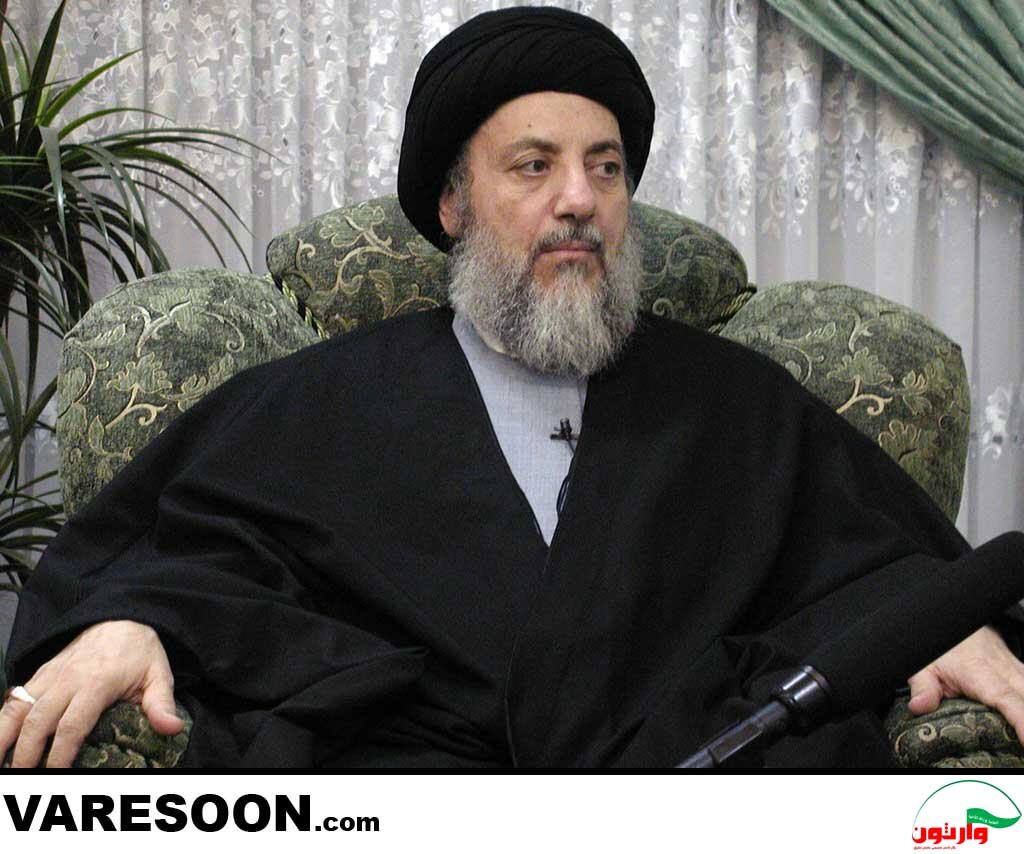By Sayyed Mohsin al-Hakim

(In the Name of Allah, the Most Beneficent, the Most Merciful) TEHRAN - Every year, on the first of Rajab (the seventh month of the Islamic calendar), the anniversary of the honorable martyr Sayyed Mohammad Baqir al-Hakim is designated as Iraq’s Martyrs Day.
The first of Rajab (the seventh month of the Islamic calendar), the day Sayyed Mohammad Baqir al-Hakim was martyred, is designated as Martyrs Day in Iraq.
Throughout his life, Martyr al-Hakim consistently fought against oppression, dictatorship, and tyranny. A summary of the ideals and principles that defined his path is presented below on the occasion of his martyrdom anniversary:
1. Reliance on Almighty Allah and belief in divine tradition for achieving ideals:
Martyr al-Hakim always relied on Allah and remained steadfast in pursuing divine goals, even in the most difficult times of his blessed life.
He never despaired of Allah’s support despite immense hardship and pressure. By Allah’s grace, this divine promise was fulfilled with the fall of the despised Iraqi Baathist regime on April 9, 2003.
2. Trust in the Iraqi people and rejection of foreign promises:
Another key principle in the life of Martyr al-Hakim was his complete trust in the will of the Iraqi people and his avoidance of relying on foreign initiatives.
This trust in the people and his efforts to inspire resistance against oppression strengthened the Iraqi popular resistance, leading to the overthrow of the Baathist regime and the failure of foreign schemes to define Iraq’s future according to their designs.
3. Persistent effort and tireless struggle:
Martyr al-Hakim never grew weary of work, struggle, and holy war. In every phase of his fight, he tirelessly worked toward the lofty goals of the Iraqi people. His relentless and uninterrupted efforts became one of the most significant factors in his success in toppling the Baathist regime.
4. Firm belief in religious authority and esteemed Islamic scholars:
Although Martyr al-Hakim was himself a prominent jurist and an intellectual leader in both political and religious affairs, he always considered himself a servant of religious authority and jurisprudence, aligning his efforts with their directives.
5. Self-discipline and spiritual nurturing of followers:
One of Martyr al-Hakim’s unique traits was his devotion and special attention to fostering committed Islamic cadres.
Alongside his political and social activities, he worked daily to instill ethical and spiritual values in his followers. Today, the political, religious, cultural, and social structures stemming from his school of thought serve as a positive influence in Iraq and the broader Islamic world.
6. Continuous intellectual and scientific efforts:
Despite focusing on the struggle against the Baathist regime, Martyr al-Hakim was deeply committed to intellectual and scientific development. His lectures on Quranic sciences at Imam Sadiq University in Qom, his contributions at the University of Proximity, and his profound scholarly articles are widely recognized.
7. Humility and connection with the people:
Martyr al-Hakim lived a very humble life, maintaining direct contact with people and addressing their concerns. His visits to camps and cities housing displaced Iraqis exemplified his dedication to resolving their problems.
8. Special attention to the youth:
Martyr al-Hakim prioritized engaging with youth. Most of his leadership team and close associates were young individuals whom he nurtured intellectually, religiously, and scientifically. Many of today’s prominent Iraqi leaders were his students or close companions, reflecting the fruits of his efforts.
9. Focus on the affairs of the broader Muslim world, especially Palestine:
Martyr al-Hakim paid close attention to the concerns of Muslims worldwide, including Palestine, Lebanon, Kashmir, Yemen, Afghanistan, Africa, and Southeast Asia.
He diligently followed their issues and, through his position in the religious authority of his late father Ayatollah Sayyed Mohsin al-Hakim, worked tirelessly to address their challenges.
Palestine, as the central issue of the Islamic world, always held a special place in his priorities.
10. Foundational principles for political governance:
Martyr al-Hakim’s vision for governance rested on three essential pillars:
a. The Iraqi government must represent all segments of the Iraqi people.
b. The Iraqi government must be elected by the people.
c. Islam, as the cornerstone of Iraqi society, must be respected by all communities.
These principles underpinned his vision for peaceful coexistence among Iraq’s diverse social, political, and cultural groups, reflected in Iraq’s current governmental structure.
11. Relations with other countries:
Martyr al-Hakim believed in preventing foreign interference in Iraq and other Islamic countries. He advocated for defining relations with Islamic and foreign nations based on national and Islamic interests.
He emphasized that the unity and cohesion of Islamic nations could transform them into a global power. His commitment to Islamic unity was evident in his role as President of the Supreme Council for the World Forum for Proximity of Islamic Schools of Thought.
Although Martyr al-Hakim is no longer physically among us, his spirit, ideas, and principles remain our guiding light. We hope that his vision for Islamic unity will continue to foster connections, define shared interests, and unite Muslims worldwide.
Sayyed Mohsin al-Hakim is Vice President National Wisdom Movement of Iraq

No comments:
Post a Comment